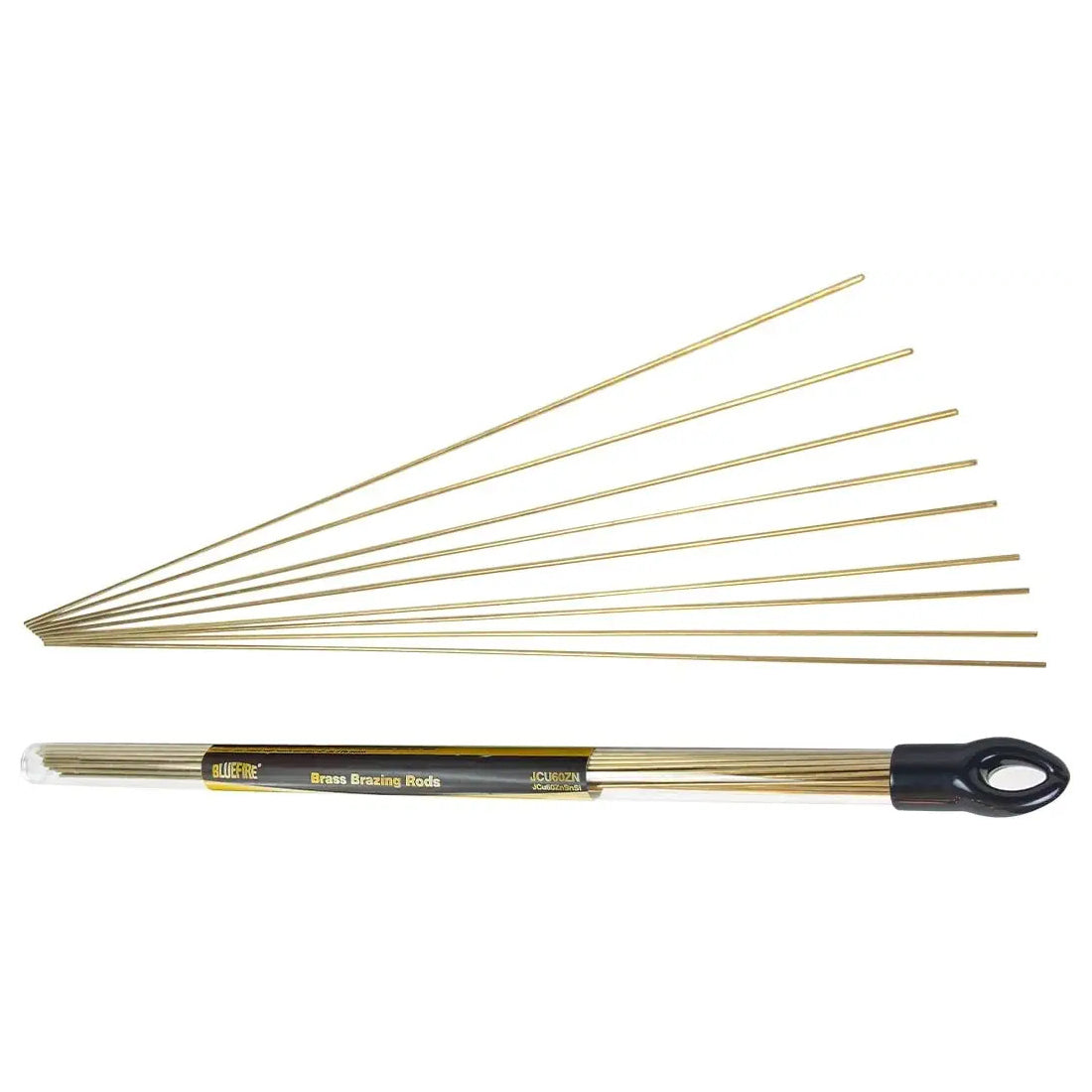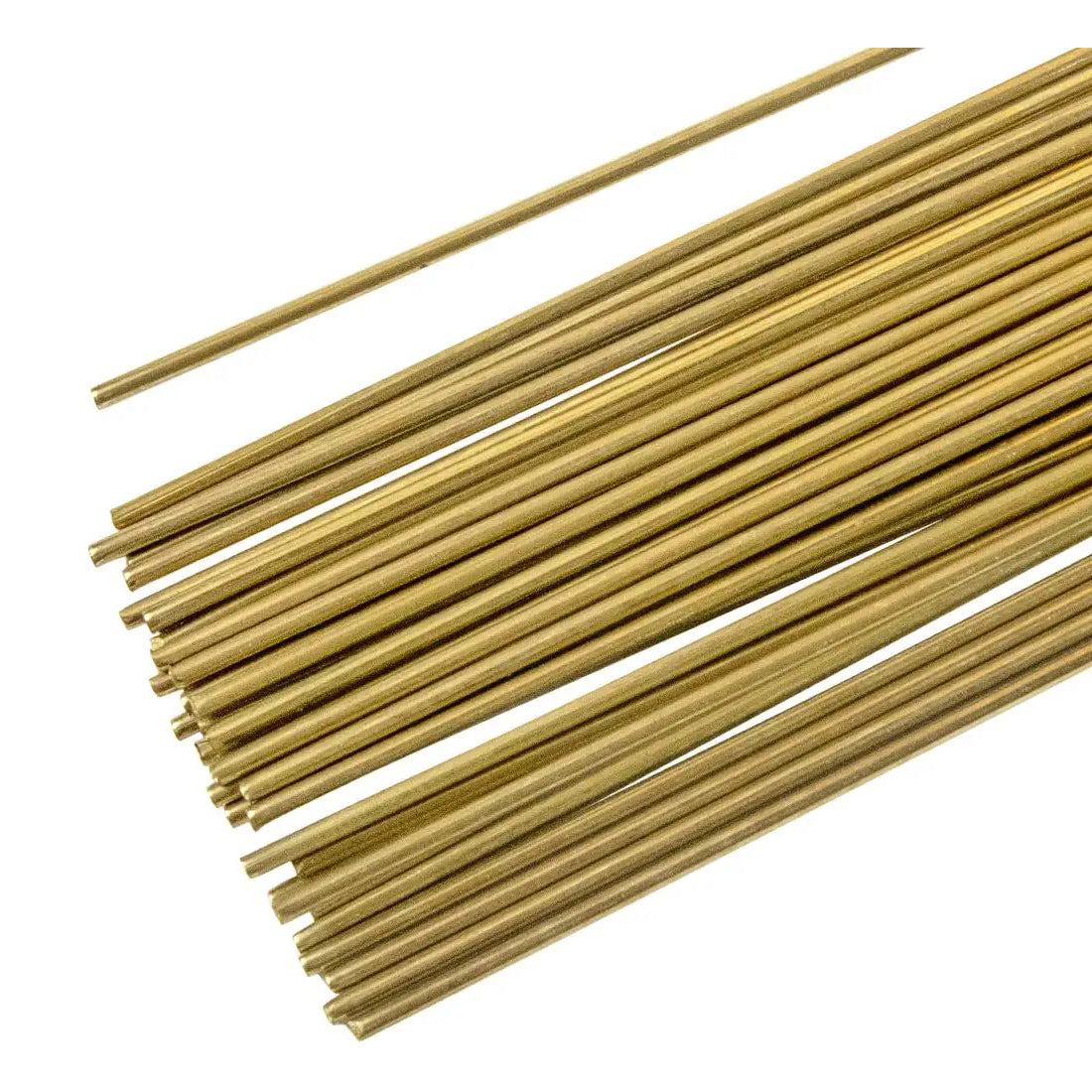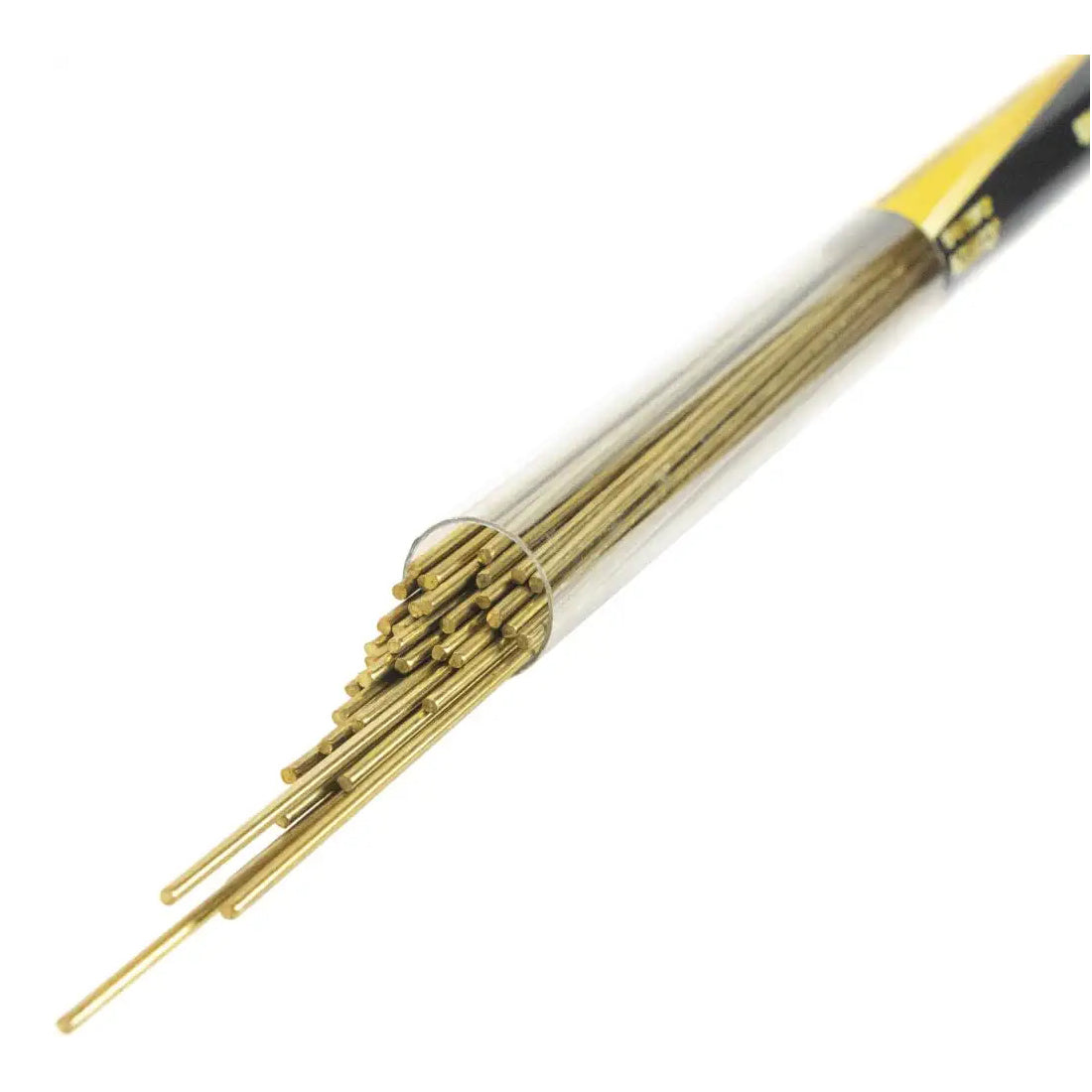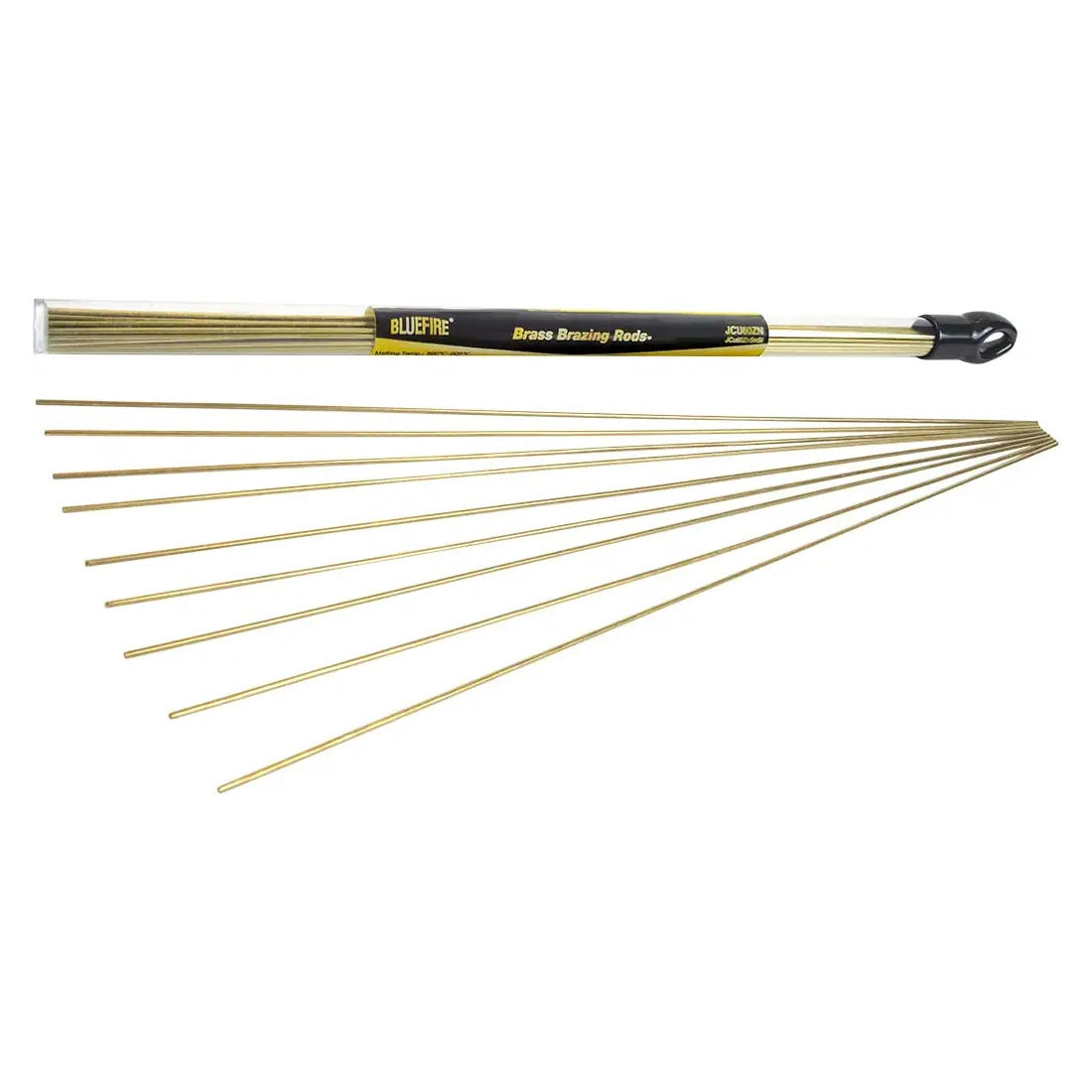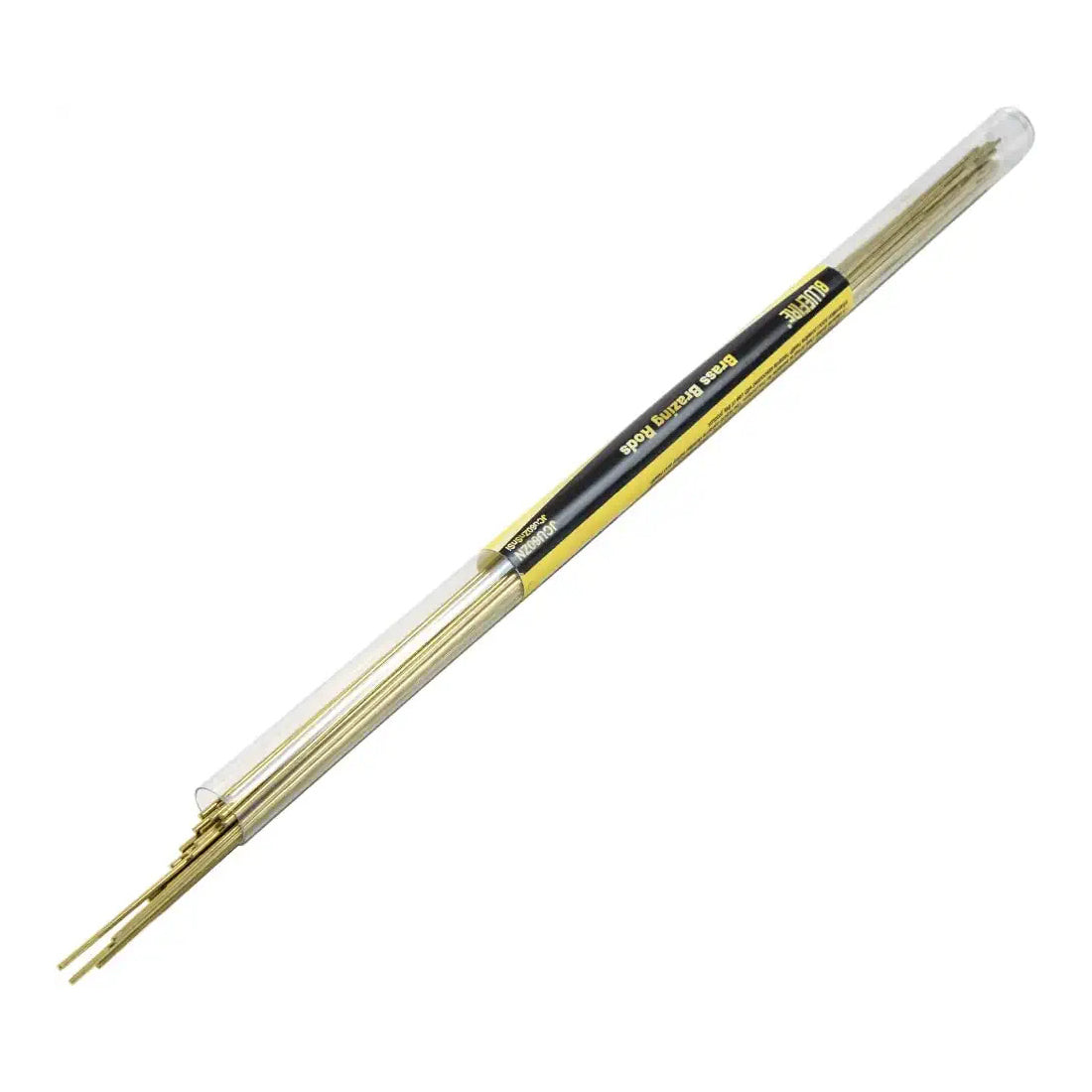1
/
of
6
Bluefire
JCU60ZN 1/2 lb 40 sticks Brass Brazing Rods containing small amounts of tin and silicon
JCU60ZN 1/2 lb 40 sticks Brass Brazing Rods containing small amounts of tin and silicon
Regular price
$16.99 USD
Regular price
Sale price
$16.99 USD
Unit price
/
per
Shipping calculated at checkout.
Couldn't load pickup availability
Shipping and handling:
Shipping and handling:
Item location:Houston, Texas, United States
Ships to:Worldwide
Excludes:Barbados, French Guiana, French Polynesia, Guadeloupe, Libya, Martinique, New Caledonia, Reunion, Russian Federation, Ukraine, Venezuela
Will usually ship within 1 business day of receiving cleared payment.
Return policy:
Return policy:
This item can be returned in its original condition for a full refund or replacement within 30 days of receipt.
Share
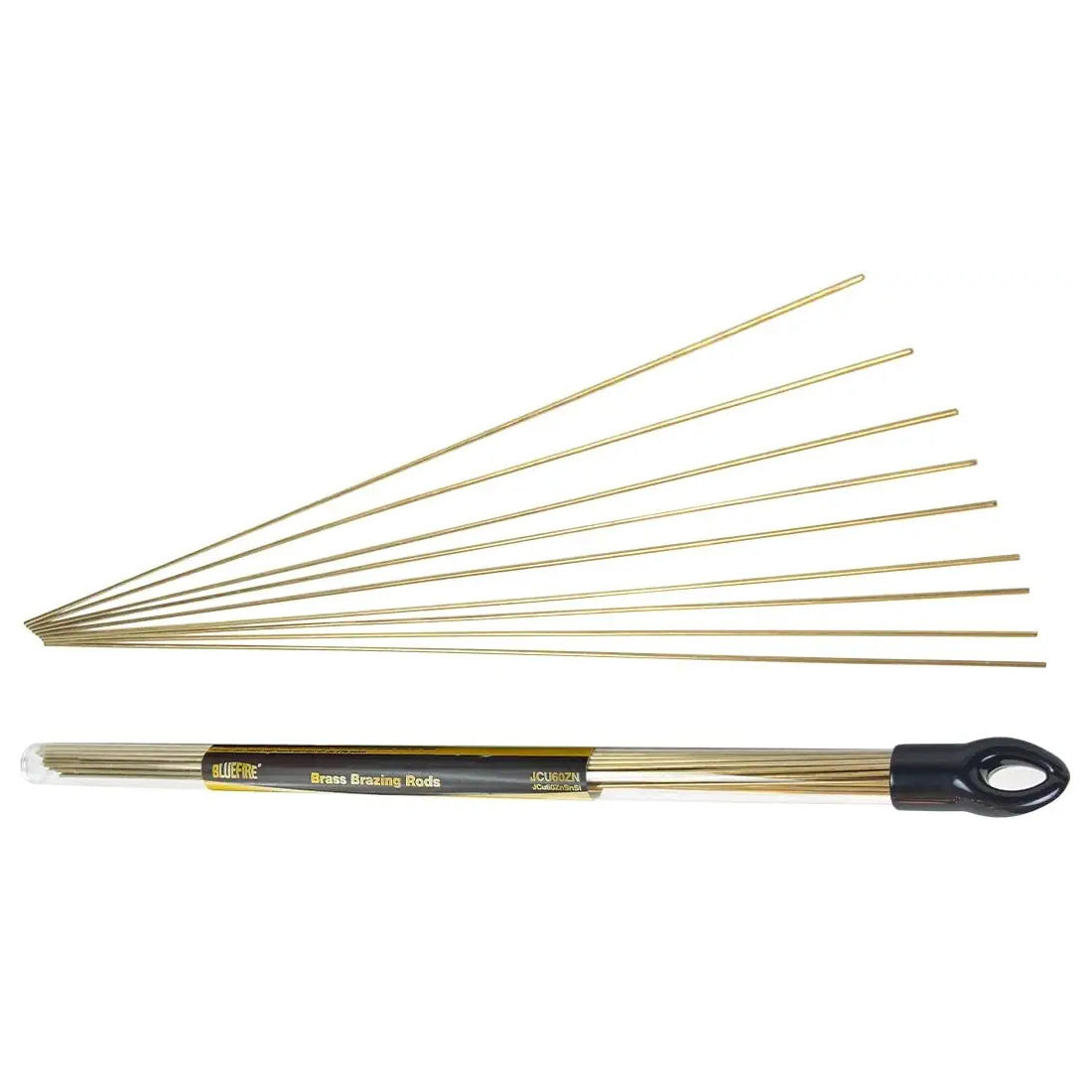
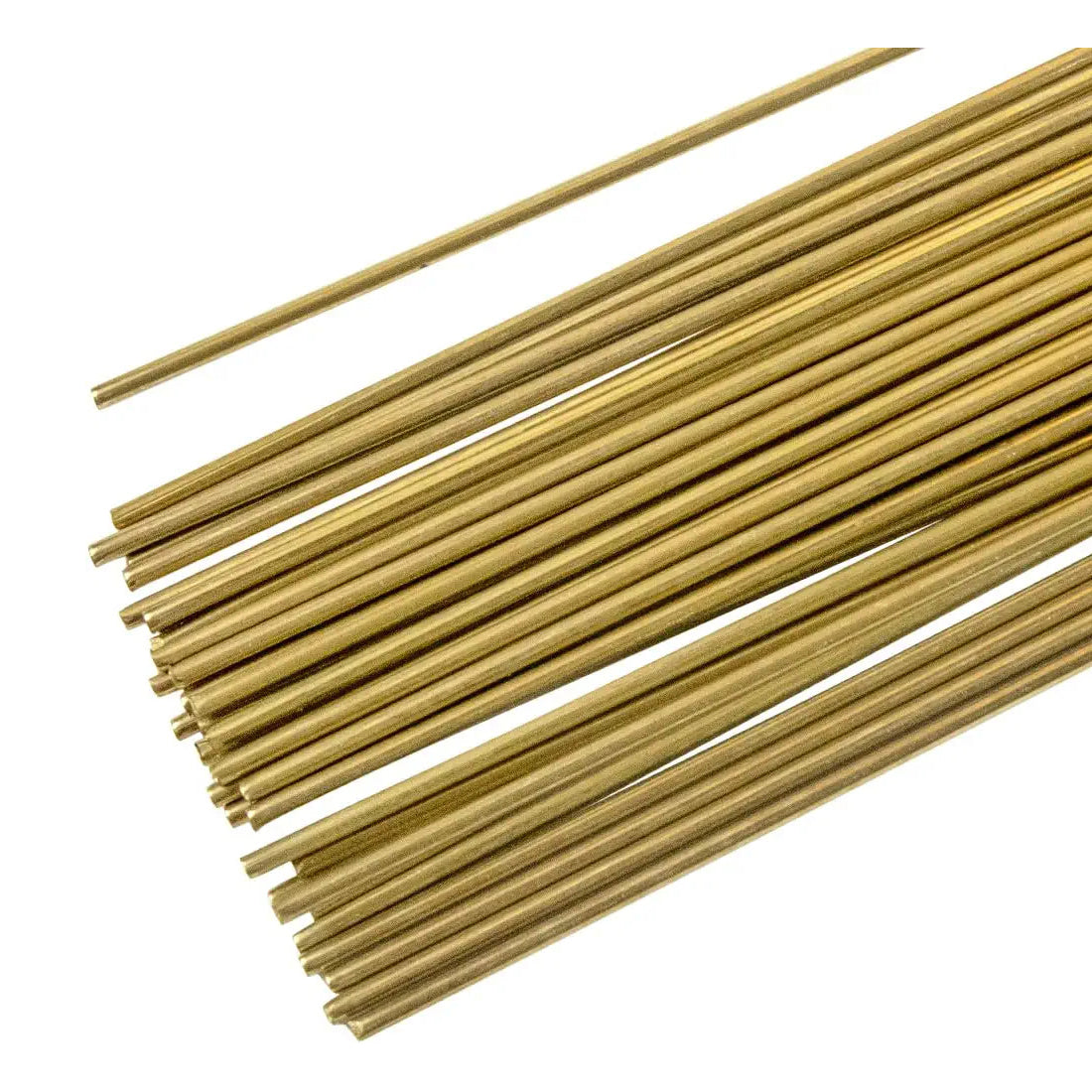
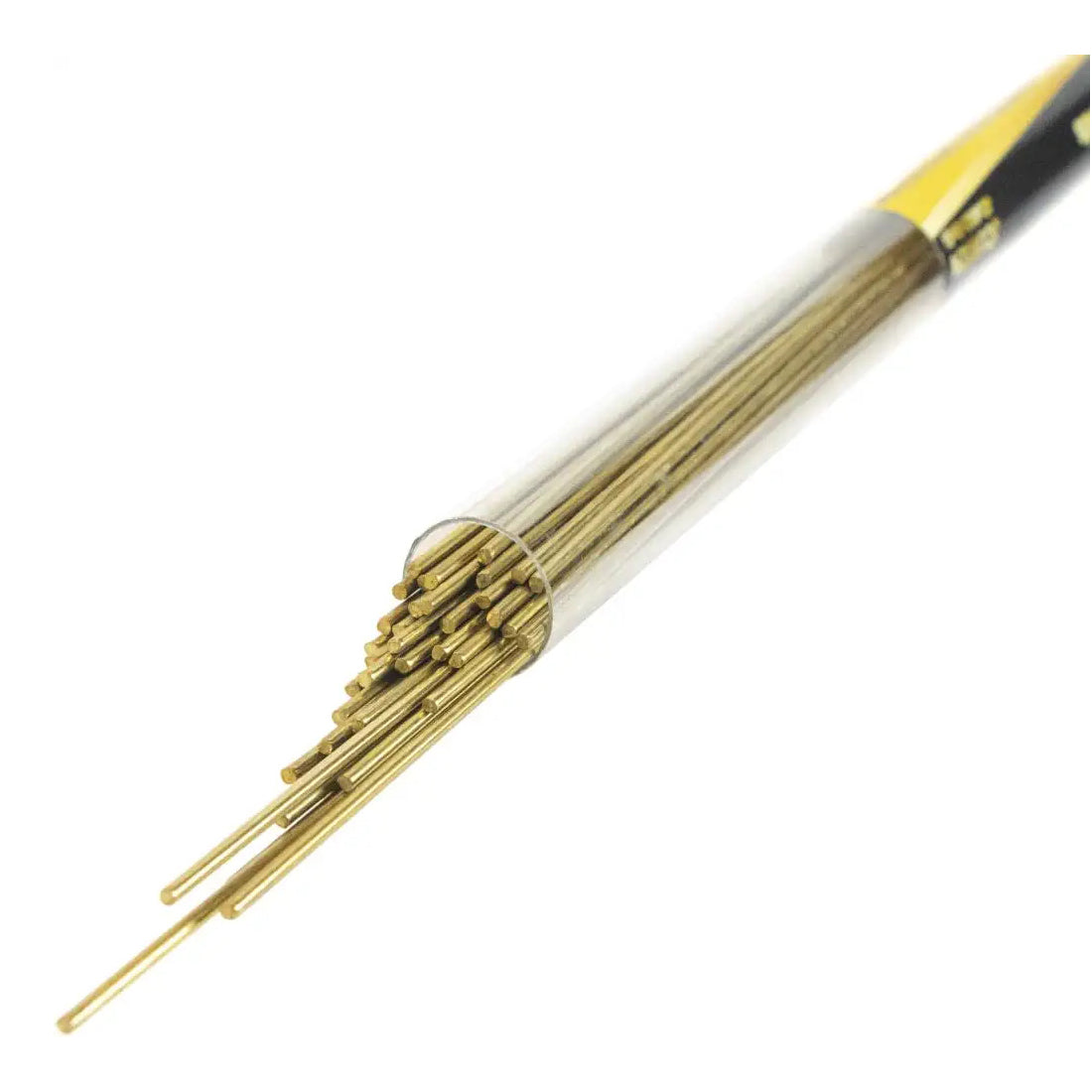
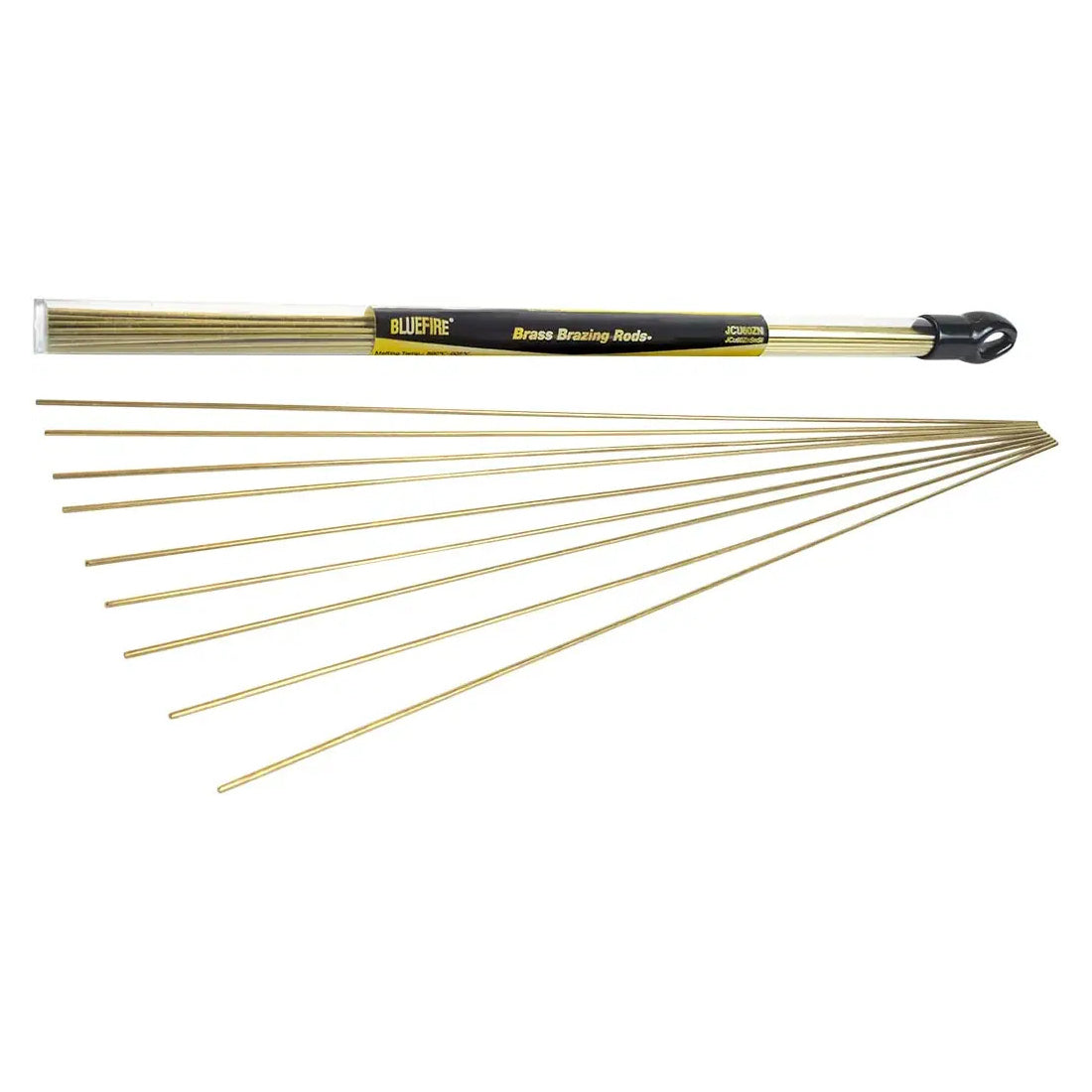
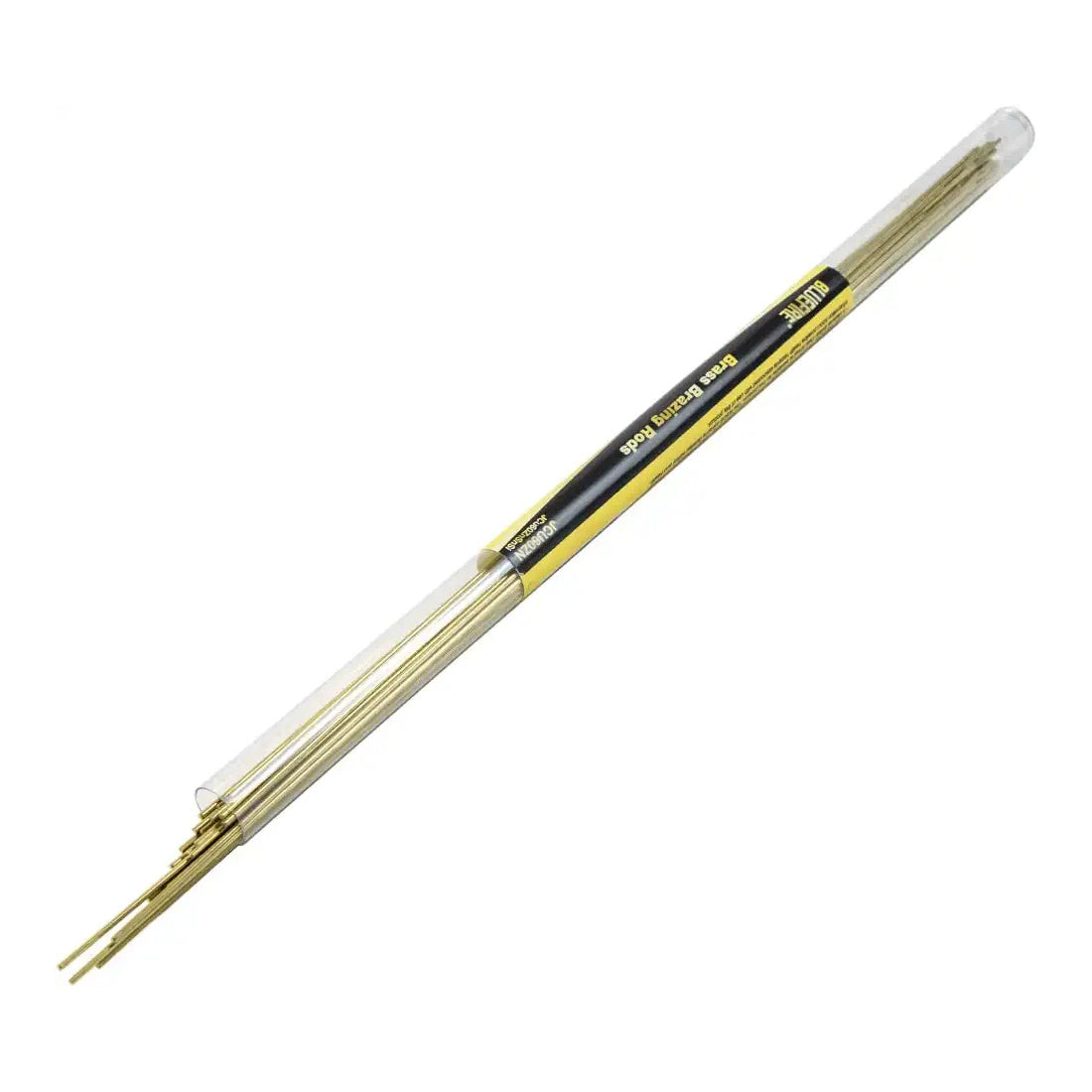
BlueFire JCu60Zn (60% Copper based Brass), or some other brass alloys in the series. It has a melting point of about 890-905°C. The brass alloy is suitable to braze low carbon steel, cast iron, nickel alloys and hard alloy parts, the joint has higher intensity and better plasticity. So, for manually hand welding thin wall steel or iron parts, brass alloy is the best choice. However, the Zinc inside it will evaperate if high heating for a long time, so brass alloy is not recommended to be used for production line oven welding, to avoid the evaperated Zinc to contaminate the inside of the oven.
- Good Fluidity:Tin can improve the fluidity of molten brass, increase the permeability of welding Copper liquid and improve the wettability.
- Excellent Mechanical Properties:Silicon can effectively control the evaporation of zinc and eliminate the porosity, so as to get good weld seam and satisfactory mechanical properties.
- Scope of Application:The brass alloy is suitable to braze low carbon steel, cast iron, nickel alloys and hard alloy parts, the joint has higher intensity and better plasticity.
- Attention:The Zinc inside it will evaperate if high heating for a long time, so brass alloy is not recommended to be used for production line oven welding, to avoid the evaperated Zinc to contaminate the inside of the oven.
- It has a melting point of about 890-905°C.

